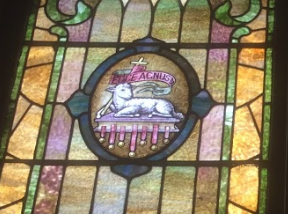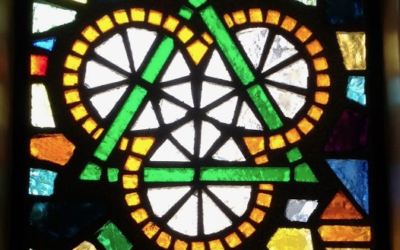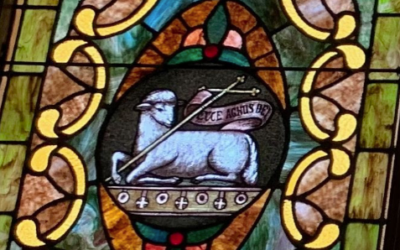Faithful managers under our generous Lord
Watch the service

Read the sermon
Think it Through
Nothing got in the way. Many years ago I began to study to be a pastor. It was in Watertown, WI. And, in those early days, I asked a girl out on a date. I didn’t know her. She didn’t know me. But we went on a date. And we were talking over dinner. I asked her what she wanted to do with her life when she grew up. And she talked about how she wanted to be a doctor. Then she asked me what I wanted to be. So I told her how I moved hundreds of miles to go to school in the middle of nowhere in WI so that, one day, I could be a pastor. And when I said that, slowly, her face changed. Where there was joy there now was resolve and determination. She asked me to take her home. And when we got to her dorm she said that she would not be going out with me again. And I was heartbroken. But there was a reason why she dealt with me the way she did. She was going to be a doctor. They work a lot of hours. I was going to be a pastor. We work a lot of hours. The math just didn’t work out. She thought it through. And there would be nothing that would get in the way of her goal. In the words we look at this morning, Jesus has much the same to share with us. My dear friends, what is your goal? What is the main goal of your life here? In Luke 16, we read: “1 Jesus told his disciples: “There was a rich man whose manager was accused of wasting his possessions. 2 So he called him in and asked him, ‘What is this I hear about you? Give an account of your management, because you cannot be manager any longer.’ 3 “The manager said to himself, ‘What shall I do now? My master is taking away my job. I’m not strong enough to dig, and I’m ashamed to beg— 4 I know what I’ll do so that, when I lose my job here, people will welcome me into their houses.’ 5 “So he called in each one of his master’s debtors. He asked the first, ‘How much do you owe my master?’ 6 “ ‘Nine hundred gallons of olive oil,’ he replied. “The manager told him, ‘Take your bill, sit down quickly, and make it four hundred and fifty.’ 7 “Then he asked the second, ‘And how much do you owe?’ “ ‘A thousand bushels of wheat,’ he replied. “He told him, ‘Take your bill and make it eight hundred.’” (Luke 16:1–7 NIV11-GKE)
To understand these words, we need to understand them in their context. Pretend for a moment that you’re a rich guy in the Old Testament days. You make your living by trading. So, you get on a boat to go to Tarshish to get silver and copper. Or you get on a camel to east to get spices and silk. Either way you are away from your home for months and even years. So you need someone to hold down the fort while you are gone. So what you would do is buy a slave to manage your household while you are gone. This steward had to be capable and faithful and trustworthy. But what if he’s not? What if, when you’re away for months and years, he is robbing from you? That’s the context we find ourselves in here.
The other key to understanding these words is a reminder of what parables are like. In parables there’s usually a curveball. And there’s usually one point. We’re going to get to the curveball shortly. But it is vitally important here to realize that Jesus is driving at one main point because it’s so easy to get sidetracked with the other details. So, the main point is not the morality. The main point here is not to speak about the rightness or wrongness of stealing. There are many other parts of the bible that speak about the 7th,, 9th, and 10th commandments. And the main point is not the math. I know that there are farmers out here in our congregation. And there is the huge temptation to get over-focuses on the number of the bushels of wheat and the cost of them. That’s not the main point. So don’t get side-tracked. The main point and also the curveball is what follows: “8 “The master commended the dishonest manager because he had acted shrewdly. For the people of this world are more shrewd in dealing with their own kind than are the people of the light. 9 I tell you, use worldly wealth to gain friends for yourselves, so that when it is gone, you will be welcomed into eternal dwellings. 10 “Whoever can be trusted with very little can also be trusted with much, and whoever is dishonest with very little will also be dishonest with much. 11 So if you have not been trustworthy in handling worldly wealth, who will trust you with true riches? 12 And if you have not been trustworthy with someone else’s property, who will give you property of your own? 13 “No one can serve two masters. Either you will hate the one and love the other, or you will be devoted to the one and despise the other. You cannot serve both God and money.”” (Luke 16:8–13 NIV11-GKE)
What is the point and also the curveball in these words? The master commended the wicked steward. What a shock that is! But then we learn why he commended him. The steward thought it through.1 The steward had one goal in his mind: He wanted to be welcomed into other homes when he didn’t have the home he was in currently anymore. And he thoughtfully and zealously patterned every detail of his life to arrive at the goal.
So let Jesus ask you today the same sort of question: What is your mail goal in this life? It wouldn’t take too much thinking to arrive at the answer that, for each of us, the main goal of this life is to make it to the heavenly, eternal life with as many friends as we can there to have with us. But here is where we confront the main problem we face in our life. There are times when we have to admit that we don’t think it through. We accumulate possessions here in this life. And these possessions can add so much stress and worry to our lives. And we think so much about our stuff that our goal of heaven is easily forgotten. And the same is true when it comes to people. We have friends in our lives. And it can be easy to be so caught up in the lives of our friends around us that we begin to forget about our goal of heaven. Our huge temptation to sin is that we are not like this steward. He thought constantly in his life about leaving the home he had and getting a newer, better home with friends to welcome him here. In our lives there is the temptation to let the people and possessions become more important than the goal of heaven.
Think it through. The amazing part of hearing these words from Jesus is that Jesus was the only human who did what he speaks about here. People were always important to Jesus. But his home in heaven was always most important. Friendships were important. But what was most important was sharing who he was with people so that when they died they would be with him forever in heaven. And my dear friends, his faithfulness and zealousness in our place pays for the times we didn’t stop and think it through.
But there’s more, in these words Jesus gives us an amazing pattern to follow that will help us in our lives. And that pattern looks like this: First, we acquire possessions. Second, we make friends with those possessions. Third, we share what is even more important than our possessions with our friends. Fourth, they die in faith and welcome us into heaven. And there are times I wonder if we overthink this. Years ago I used to ride a motorcycle. And I never grew up riding bikes. And so the culture around it was new to me. I would go camping and get off of my bike. And people would come up and start talking to me about my bike. I would stop at a rest stop. And when I came back to my bike, there would be people there around my bike just waiting there to talk to me about it. It was weird to me to see how somehow, you buy something, and immediately you have friends.
But it doesn’t have to be big, expensive items. I remember a wise old man I met many years ago. He was in an assisted living center. It was him and about 30 women. And he wanted to share his faith. So what did he do? He sat down and studies all the people there for some weeks. And there was a really active program director there. She was all about exercise. So what did the man do? He joined as many of the activities as he could. He did so to take care of his body. But he also did so so that he could make friends. And with that friendship there would be opportunities to share his faith. And all it cost him was time. He thought it through. Possessions lead to people. And with people comes the opportunity to lead people to heaven.
And finally, my dear friends in Christ, when we zealously remind ourselves of our heavenly goal, then the stress of possessions and people doesn’t get to us like it used to. Think it through like this wicked steward. And the Holy Spirit will help you in this task all the days of your life. Amen.
1 “ⲫⲣⲟⲛⲓⲙⲱⲥⲉⲡⲟⲓⲏⲥⲉⲛ·” (Luke 16:8 GNT-ALEX)



